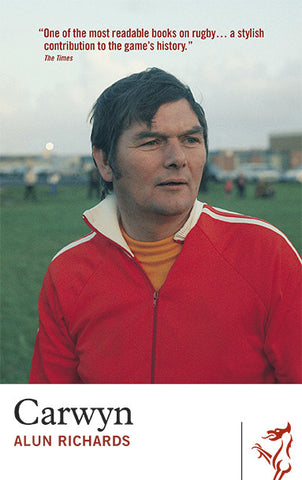Carwyn James treated rugby football as if it was an art form and aesthetics part of the coaching manual. This son of a miner, from Cefneithin in the Gwendraeth Valley, was a cultivated literary scholar, an accomplished linguist, a teacher, and a would-be patriot politician, who also won two caps for Wales. He was the first man to coach any British Lions side to overseas victory, and still the only one to beat the All Blacks in a series in New Zealand. That was in 1971, and it was followed in 1972 by the triumph of his beloved Llanelli against the touring All Blacks at Stradey Park. These were the high-water marks of a life of complexity and contradiction. His subsequent and successful career as broadcaster and journalist and then a return to the game as a coach in Italy never quite settled his restless nature.
After his sudden death, alone in an Amsterdam hotel, his close friend, the Pontypridd-born writer, Alun Richards set out through what he called “A Personal Memoir” to reflect on the enigma that had been Carwyn. The result, a masterpiece of sports writing, is a reflection on the connected yet divergent cultural forces which had shaped both the rugby coach and the author; a dazzling sidestep of an essay in both social and personal interpretation.
“One of the most readable books on rugby... a stylish contribution to the game’s history.” The Times
“The best evocation there is of this charismatic if restless man.” Gerald Davies
“The Welsh persona is at the heart of Alun Richards’s book, so much so that the reader could be forgiven for imagining that Dylan Thomas played fly half for Swansea and that Harry Secombe hooked for Pontypool, and perhaps still does... untold pleasure and excitement.” Chris Laidlaw, The Sunday Times
“A craftsman, a wordsmith who can compel you to re-read and savour a sentence, a paragraph or a number of pages...” The Observer
“Stayed up half the night and cracked the dawn. Loved it.” Cliff Morgan
“A beautifully written insight into the very heart and soul of Welsh Rugby and a handsome addition to the literature of the game.” Bill McLaren

